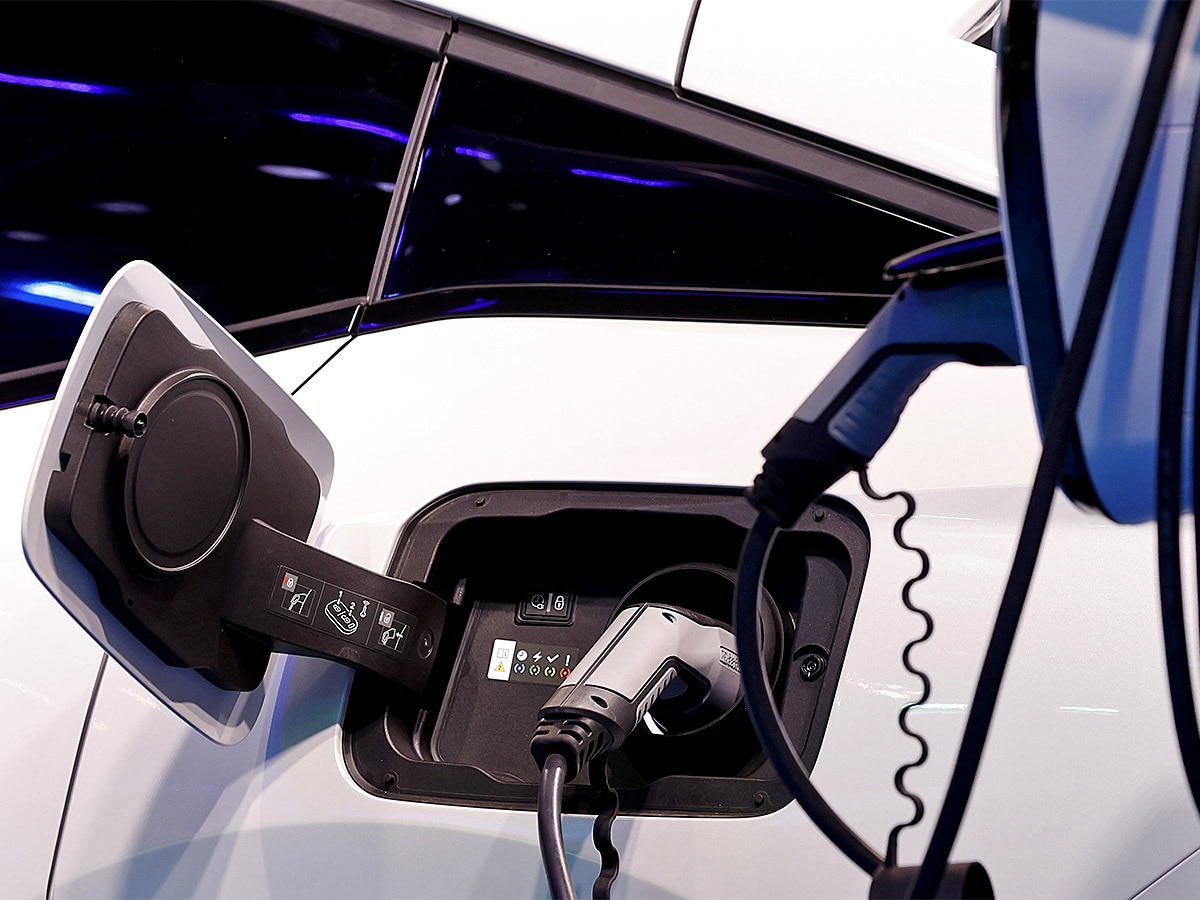It’s a been difficult year for EV makers, with production line costs soaring and consumers cutting back. However, despite earnings losses for Lucid, Rivian and NIO, revenues and orders climbed. Future orders look strong as the world turns towards electric cars.
- EV makers report net losses but climbing revenues
- Research forecasts that by 2035 the automotive market will be fully electric
- The ALPS Clean Energy ETF offers exposure to both Lucid and Rivian
It’s been a tough year for electric vehicle (EV) stocks Lucid [LCID], Rivian Automotive [RIVN] and NIO [NIO] against a backdrop of high inflation and rising costs.
Luxury US EV maker Lucid reported a net loss of $530m or $0.40 per share for the third quarter, missing analyst forecasts of $0.30 polled, according to Seeking Alpha.
Its $195.5m in revenue from 1,398 vehicles also missed revenue forecasts, sending shares down to a 52-week low of $10.89 the day after the announcement on 9 November. But remains on track to reach annual production guidance of 6,000–7,000 vehicles.
Truck maker Rivian also announced a loss in Q3. Its net loss remained at a hefty $1.7bn — the same figure it reported in the previous quarter — while revenues jumped to $536m. However, Reuters reported that this missed estimates of $551.6m. The stock jumped 17% the day after its earnings release on 10 November after reaffirming a target of 25,000 vehicles for 2022, though this was half an earlier forecast.
Last of the three to report was Chinese automaker NIO [NIO] on 10 November. It posted wider-than-forecast losses of 4.1bn yuan ($557m) but revenues climbed to 13bn yuan ($1.83bn), jump 32% above year-ago figures, and beating estimates. Its stock closed up 11.7% after the announcement.
Demand on the up
Lucid reported strong demand for its Air model, with reservations topping 34,000, equal to $3.2bn sales. Expansion is key to the EV market. Lucid said that by 2023 it would grow its range, including the high-performing Air Sapphire model, more affordable Air Pure and forthcoming Gravity SUV.
“We plan to begin delivering some of these vehicle variants internationally,” CFO Sherry House added during the earnings call. With rising costs a challenge, she said they would “keep a watchful eye on manufacturing overhead and labour”, and “raw material inflation”.
Rivian reported producing 7,363 vehicles and delivery 6,584 for the quarter. However, the company cut its guidance for capital expenditures in the financial year from $2bn to $1.75bn.
NIO said demand looked good for its new ET5 sedan. It anticipates a record fourth quarter of 43,000—48,000 vehicles being delivery, worth revenues of up to 19.2bn ($2.7bn). It already broke records in Q3, with deliveries of more than 31,000 vehicles.
Market bullish about EV theme
EVs are set to become more widespread as consumers seek eco-friendly transport solutions that rely less on fossil fuels. President Joe Biden has signalled his commitment, saying he wants EVs to comprise 50% of vehicles sold in the United States by 2030.
However, many companies in the space are startups yet to see profits. EV makers have seen costs rise in a tough microeconomic climate. Consumers are also stretched, which is slowing demand. To keep prices down — especially batteries, which are notoriously expensive — Lucid CEO Peter Rawlinson said it would develop its “own ultra-high technology in-house”.
In time, it’s likely investors’ patience will pay off. “By 2035, the largest automotive markets will be fully electric,” according to a 2022 McKinsey report.
Automakers “want to be part of the narrative and early adopters,” Jessica Caldwell, executive director of insights at Edmunds.com, told The Guardian. “Nobody wants to be seen as being behind.”
Funds in focus: ALPS Clean Energy ETF
Lucid is held in 107 US-traded ETFs, according to ETF.com, with its largest allocation in the ALPS Clean Energy ETF [ACES], where it has a weighting of 5.3% — it is the sixth-largest holding in the fund.
Rivian is the third-largest stock in the ALPS Clean Energy ETF, where it has a weighting of 5.68%. In the last week, the fund has performed flat, though year-to-date it is down 11.3% as of 10 November.
NIO, meanwhile, is the fourth-largest holding in the KraneShares MSCI China Clean Technology Index ETF [KGRN], where it had an allocation of 5.84% on 9 November. The fund has fallen by almost 41.7% year-to-date.
Continue reading for FREE
- Includes free newsletter updates, unsubscribe anytime. Privacy policy





